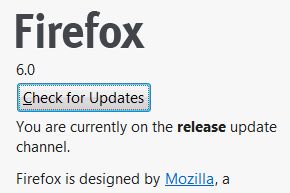Analysis: Firefox's frequent, unexplained updates and Chrome's "Defensive Computing" tactics prompt a reconsideration of browser choice.
I used to be a big fan of Firefox, now I find myself using Chrome more and more. Here are some illustrations of what I see, from my Defensive Computing perspective, as the downward trend in Firefox and the improvements in Chrome.
One Defensive Computing advantage of Chrome over Firefox is that it asks before running Java applets.
This wasn't always the case. I had a copy of Chrome version 10 hanging around, for example, and it runs applets indiscriminately. But, after reports of old versions of Java being frequently exploited to install malicious software, Google added the warning shown below. Good for Google.
And, it turns out that somewhere between Chrome version 11 and the current version, 13, this feature has been improved.
On a Windows computer, I recently logged in to the GoToMyPC website to remotely control another computer. When Java is installed, GoToMyPC runs an applet that transparently invokes an EXE to connect to the remote computer. Without Java, it first downloads the EXE which you have to run manually.
This time, rather than simply asking permission, Chrome blocked the GoToMyPC Java applet because the installed copy of Java was out of date (see below).
The Java plug-in was blocked because it is out of date
The Java plug-in was blocked because it is out of date
Gone is the button to always run Java on this site, replaced instead by an "Update plug-in" button that links to a download page at java.com. The installed copy of Java was Version 6 Update 25; the latest, at the time, was Update 26.
This is pure gold. It tells the user what they need to know, when they need to know it. Firefox does not do this.
As Chrome seems to improve, Firefox seems to be sliding.
In the good old days, Firefox was great about informing users of new versions. It put up a window in the middle of the screen that said, in effect, you have version x and version y is now available, would you like to download it. It was simple, clear, informative and effective. Those days though, are long gone.
Firefox got rid of the big window in the middle of screen and went to a small window in the bottom right corner. Worse still, this small window only displayed for a couple seconds before disappearing. Many times I missed what it said with no obvious way to get it back.
But, at least when you updated to a new version/release of Firefox, the first page it displayed welcomed you to version x.y.z.
Now, even that's gone. When updating from Firefox version 5 to 6 the new welcome screen, shown below, merely says that "Your Firefox is up to date." No more version numbers.
This is by design. Mozilla no longer likes version and release numbers. The plan is to phase them out,even from the Help -> About window. I kid you not.
Asa Dotzler, of Mozilla, in a "let them eat cake" moment wrote:
When a user opens the About window for Firefox, the window should say something like "Firefox checked for updates 20 minutes ago, you are running the latest release ... If a user needs the full version information they can get it from about:support.
I've used Firefox for years and had no idea there was a hidden "about:support" page.
To me, this is symptomatic of user interface problems with Firefox. Frankly, I found the redesign introduced with version 4 a step back, not forward.
Another example can be found in a new addition to the Help -> About window in Firefox 6 which now reports that "You are currently on the release update channel."
Say what?
While reasonable people can disagree about a user interface, installing bug fixes in a timely manner is unquestionably important. And it is here that Chrome truly shines compared to Firefox.
In a nutshell: Chrome self-updates quickly and quietly. Firefox does not.
Rather than worrying about showing end users a version number, Mozilla should do more to make the version number irrelevant by having Firefox auto-update itself and the installed add-ons.
Yes, Firefox does have an option to self-update (Tools -> Options -> Advanced -> Update tab -> Automatically download and install the update checkbox). But, from what I can tell, the check for updates only happens when the end user does Help -> About. That doesn't strike me as very automatic.
Adding developer-oriented features seems to be the priority for Firefox. My preference is for Defensive Computing features.
Techies that help others with their computer can do their friends/family a favor by installing Chrome and making it the default browser.








0Awesome Comments!